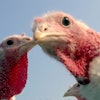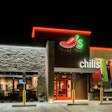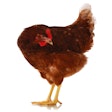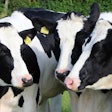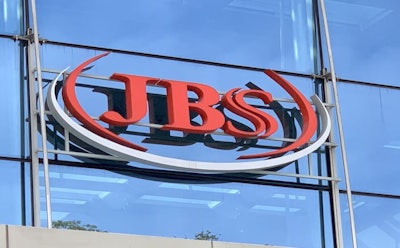
JBS, the world’s largest poultry producer, is now commercially producing fertilizer.
Earlier this month, the Brazilian giant, with operations that span the globe, announced its entry into the market with a the inauguration of a R$134 million (US$27.6 million) fertilizer plant in Campo Forte, Sao Paulo. The site will produce organic fertilizers, organominerals and specials.
The company notes that the Campo Forte plant will help it to meet its 2040 net zero commitment by finding a use for the waste materials from its other activities and that it is the first Brazilian food producer to take this approach.
Perfect timing
The plant’s opening could not come at a better time. Worldwide fertilizer prices are now sky high, and Brazil is a major fertilizer importer. The country’s farmers are already said to be applying less fertilizer to their corn crops and soybeans may be next.
JBS notes that 87% of the fertilizer used in Brazil is imported and that, initially, its Campo Forte plant will prioritize fertilizers for soybeans, corn and coffee, among others.
The plant will serve the B2B and B2C markets and, in addition to offering fertilizers, will also provide consultancy, technical support and laboratory analyses.
Do chicken and fertilizers mix?
Is fertilizer really the right business for the world’s largest meat processor to be entering? JBS certainly has a lot of raw materials to work with, so finding inputs shouldn’t be a problem, but there are plenty of other reasons why the company can see opportunities.
Worldwide fertilizer supply is failing to meet demand, and weeks have seen a number of warnings that, without a resolution to the crisis, there will be a very serious food supply problem next year.
Russia, which accounted for approximately 14% of global fertilizer exports, has suspended overseas sales, following in the footsteps of Chinam which did the same last year. High gas prices have affected production in Europe, for example, so there really is not enough to go around.
And for JBS, it would also appear that the factory opening is not simply a case of great timing, it is also one of being in the right place at the right time. Prior to the invasion of Ukraine, the International Fertilizer Association noted that Latin America would be the main driver of global demand for fertilizer this year, as it was last year along with Asia.
JBS will find a new use for a quarter of the organic waste that comes from its main business and will improve its sustainability profile. This circular economy initiative, under consideration since 2016, is one of various the company has and will help to produce the crops that feed, not just its own livestock, but those for human consumption as well.
While JBS’ fertilizer business is currently operating solely in its home market, given the breadth of its operations around the globe, it may well have the potential, and the stimulus, to repeat this model in other parts of the world.


